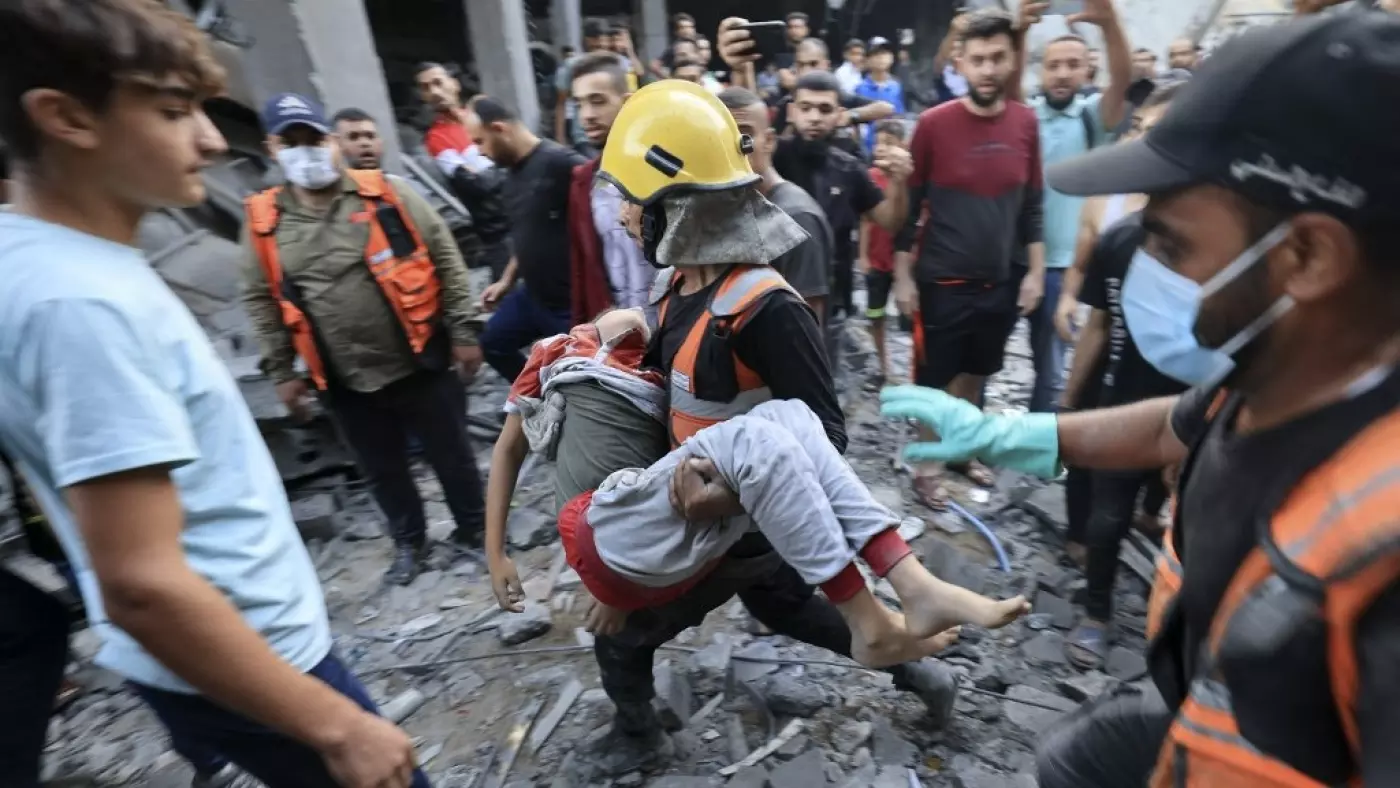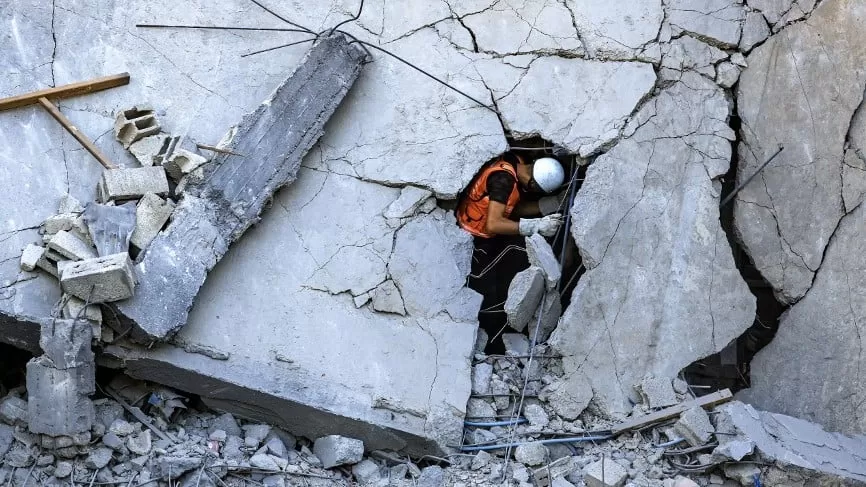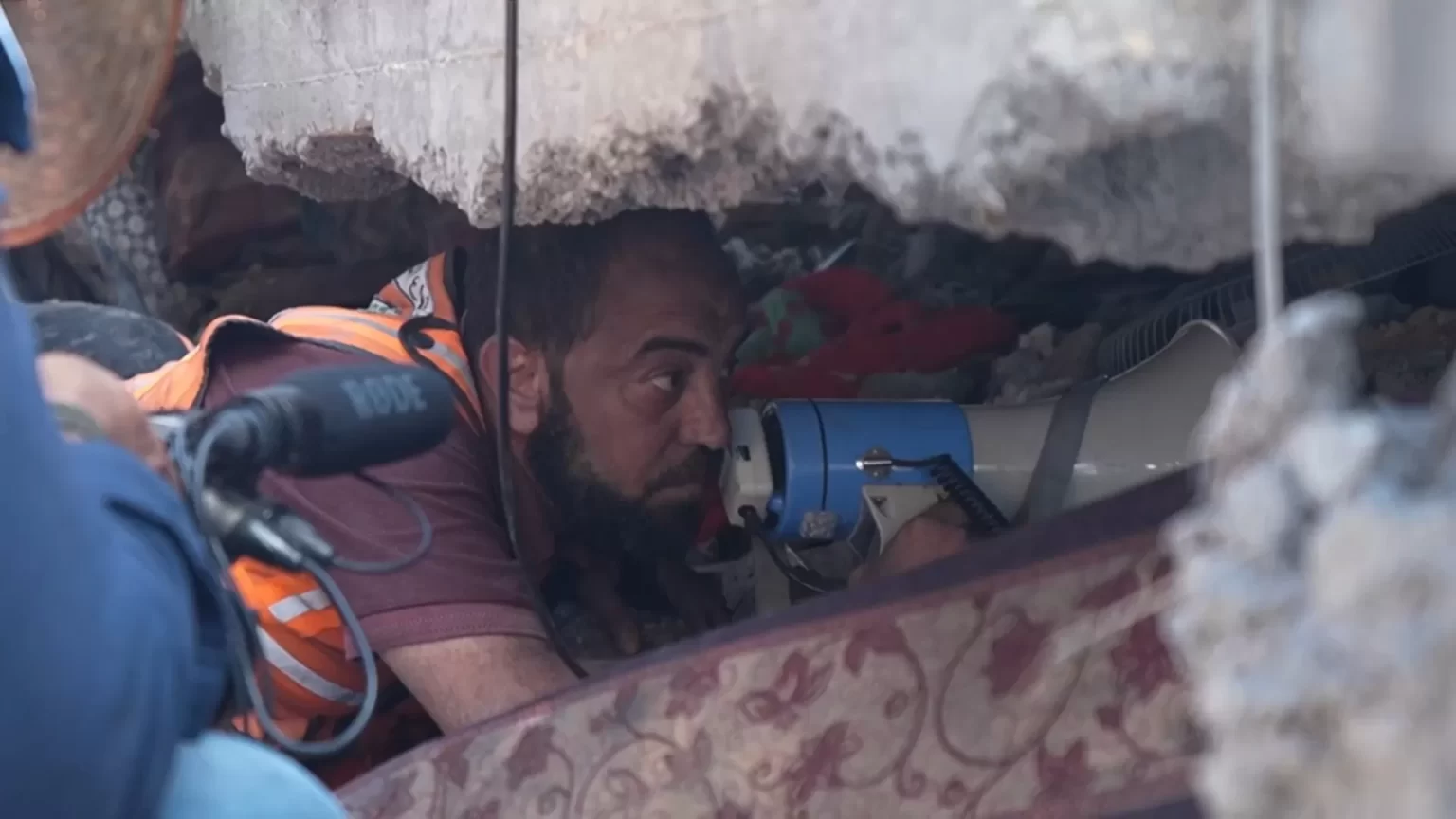Watan – Civil defense workers in the Gaza Strip are sounding the alarm that they are operating at full capacity and are unable to rescue all the injured or retrieve bodies from the rubble of bombed houses, amidst the ongoing Israeli war on the besieged strip for over two weeks.
Nuh Lafi, a civil defense worker, pointed out that the rescue teams in Gaza are not equipped to retrieve all bodies due to the nature of the widespread Israeli war, which also targeted civil defense and ambulance crews. Israeli warplanes killed six civil defense workers and injured more than 11 others in the past two weeks.

Mohammed Fathi Sherir, Head of the Safety and Protection Department in the Civil Defense Directorate, confirmed that the situation in the Gaza Strip is worse than what is shown on TV screens and mobile phones. He added that civil defense teams face significant constraints, and many are still trapped under the rubble, requiring the use of heavy machinery for retrieval.
Gaza’s civil defense crews need heavy equipment and advanced tools to be able to retrieve victims from under the rubble. Sherir emphasized that the Gaza Strip urgently needs international aid and rescue teams to help retrieve the injured and deceased.

The fuel crisis has severely complicated rescue efforts. Major Mahmoud Basal, the official spokesman for civil defense in Gaza, explained that Israel’s recent cut-off of electricity and fuel supplies has negatively impacted their operations.
Amer Abu Seif, from one of the Palestinian families whose homes were bombed in Israeli airstrikes on the Jabalia refugee camp in northern Gaza, said, “Our house in the Jabalia camp was targeted at 1 am. There were more than 15 people in our house, including displaced people seeking safety.”
